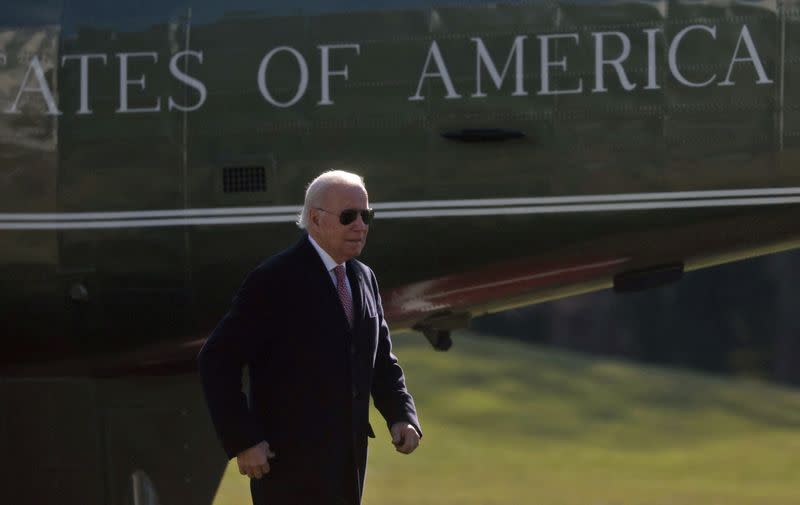Biden says 'silence is complicity' on anti-Semitism

- Oops!Something went wrong.Please try again later.
- Oops!Something went wrong.Please try again later.
By Steve Holland
WASHINGTON (Reuters) -President Joe Biden on Monday used a Hanukkah celebration to call on Americans to get off the sidelines and join the fight against rising anti-Semitism in the United States.
"Today, we must all say clearly and forcefully that anti-Semitism and all forms of hate and violence in this country have no safe harbor in America. Period," Biden said.
He also said that "silence is complicity."
Biden delivered the remarks during a Hanukkah reception that included adding the first-ever official White House menorah. It is the first Jewish artifact to be added to the White House archives.
"The White House has never had its own menorah, until now. It is now a cherished piece of this home, your home, tonight," first lady Jill Biden told the crowd gathered at the White House.
The Democratic president's move comes as reports of anti-Semitism have increased nationwide. Last week, Biden launched a new effort to develop a national strategy to counter anti-Semitism.
The issue has drawn headlines in recent weeks after Republican former President Donald Trump hosted white supremacist Nick Fuentes and the musician formerly known as Kanye West at his private club in Florida.
Last year saw the largest number of anti-Semitic incidents, including murder, physical assaults, harassment and vandalism, since the Anti-Defamation League began collecting records 40 years ago, the racism watchdog said in its most recent annual audit.
According to FBI data released earlier this month, more than 7,200 hate crimes were reported in 2021 in the United States. Over 60% of the reported incidents were based on race, ancestry or ethnicity, while about one in six were classified as sexual orientation-bias crimes and one in seven as religion-bias crimes.
(Reporting by Steve Holland in Washington and Jarrett Renshaw in PhiladelphiaEditing by Jonathan Oatis and Matthew Lewis)

